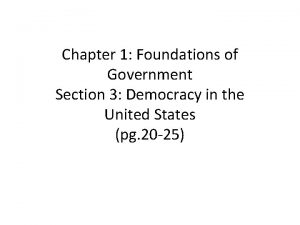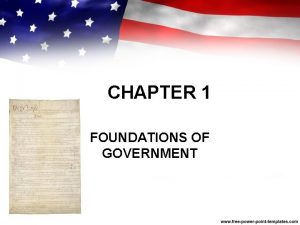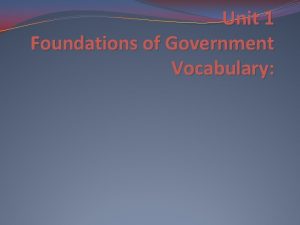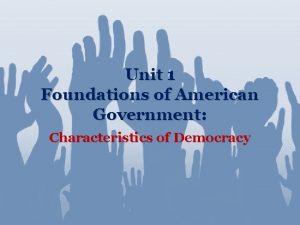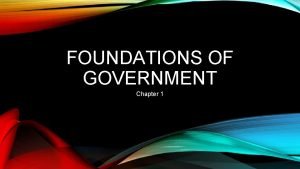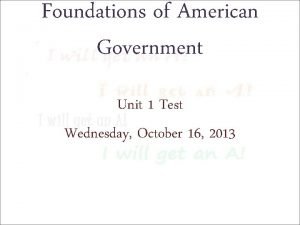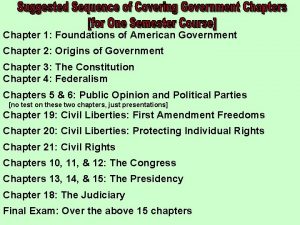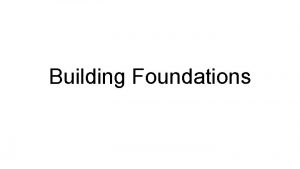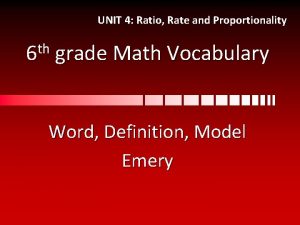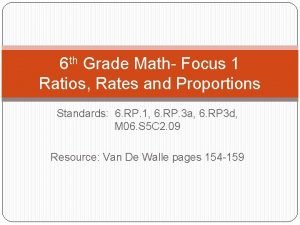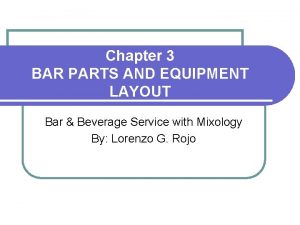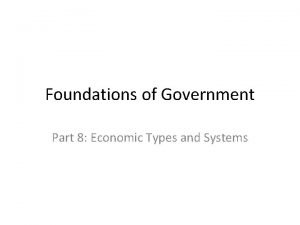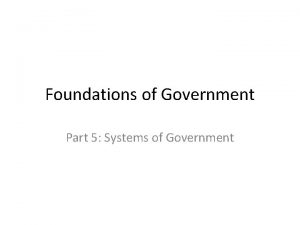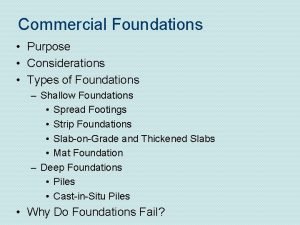Foundations of Government Part 6 Types of Government












- Slides: 12

Foundations of Government Part 6: Types of Government

Review • • What is a government? How does government emerge? What are the natural rights? What are the systems of government? • Can a system be further defined?

Types of Government • A nation-state in creating a government, chooses its type first, and develops a system as time continues. • There are THREE major types of government: – Autocracy – Oligarchy – Democracy

Autocracy • Rule by one person. • All authority is given to a single individual. This authority can be gained various ways, examples being inheritance, and military power. – This creates the position of authority as being either gained, or given.

Autocracy: Position Gained • Dictatorship – Usually totalitarian, in which a single leader is in complete control of all aspects of social, political, and economic life. – This is a position that is usually won by force and military power. – Their responsibility is not to the people, as the people have no power.

Autocracy: Position Gained • Dictators do not have to be totalitarian. – Authoritarian dictators focus more on politics than all other aspects of life. • Dictators do not have to take over the position militarily. – They can be appointed, or even elected in some cases. – To achieve a position this way, dictators will often claim they will rule for the sake of the people.

Autocracy: Position Given • Monarchy – A single ruler exercises all powers of government (and sometimes religion). – The throne is typically inherited through heredity. – Monarchs often make, or appear to make the attempt to hear the voice of the people.

Autocracy: Position Given • There are TWO major forms of a monarchy – Absolute Monarchs have complete and unlimited power to rule their people. – Constitutional Monarchs share their governing powers with elected officials and serve as ceremonial leaders.

Oligarchy • A small group holds power. (Rule by a few) • An oligarchy’s power typically comes from wealth, military power, social position, and/or sometimes religion. – Often claim to rule for the sake of the people, much like a dictatorship. – However, they usually wind up suppressing any political opposition.

Democracy • Rule by the people. • The people hold sovereign power to protect their own interests. • Make decisions through personal input, i. e. , voting. • There are TWO major types of democracy: – Direct – Representative

Democracy: Direct Democracy • People govern themselves and make decisions as a whole through voting on key issues. – Problems that appear in direct democracy often have to do with the people’s participation or lack their of. Therefore, most of the problems have to deal with the population. • In a direct democracy, everyone must vote on everything every time an issue arises.

Democracy: Representative Democracy • The people elect representatives to vote for them. • The people give these representatives the power to conduct government on their behalf. – This is also known as a republic, where citizen participation is required as voters hold sovereign power, and solves the problem of size in a direct democracy. • A constitutional republic strives to limit the government as it holds the people as the ultimate source of power. • While stemming from democracy, republics do not exist in every democracy.
 Foundations of government section 3
Foundations of government section 3 Lesson 1 purposes and origins of government answer key
Lesson 1 purposes and origins of government answer key Chapter 1 foundations of government vocabulary
Chapter 1 foundations of government vocabulary Unit 1 foundations of american government
Unit 1 foundations of american government Chapter 1: foundations of government pdf
Chapter 1: foundations of government pdf Foundations of american government unit 1 test review
Foundations of american government unit 1 test review Foundations of government (chapter 1 test form a)
Foundations of government (chapter 1 test form a) Types of building foundations
Types of building foundations Part part whole addition
Part part whole addition Part to part ratio definition
Part to part ratio definition Brainpop ratios
Brainpop ratios Technical descriptions
Technical descriptions Front bar layout
Front bar layout
